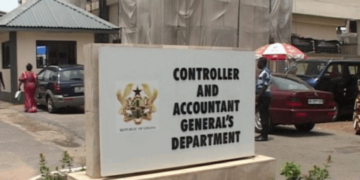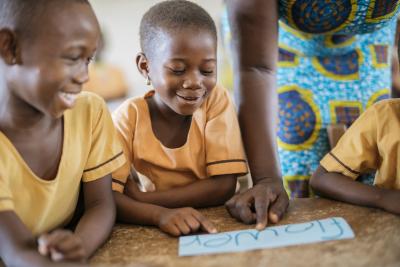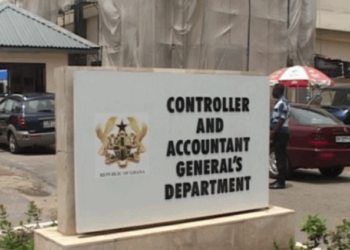On Wednesday, November 17, 2021, the Minister of Finance, Ken Ofori-Atta, is slated to give the 2022 Budget Statement and Economic Policy.
He is anticipated to discuss all essential sectors of the economy that must be examined in order to handle the country’s challenges.
Despite the fact that education is critical to the country’s growth, the sector is riddled with challenges.
Stakeholders are still fighting for a piece of the national cake.
The request for a review of their basic wage by various teacher unions, including the Ghana National Association of Teachers (GNAT), the National Association of Graduate Teachers (NAGRAT), and the Coalition of Concerned Teachers (CCT), seems to have fallen on deaf ears.
They have been putting pressure on the government for some time now to consider a 4% pay increase for 2021 and a 7% pay increase for 2022 for public sector employees.
The CCT, for example, has reinforced its requests for the government to initiate discussions to raise the rates to reflect the current economic hardships that teachers are facing ahead of the budget presentation on November 17, 2021.
The University Teachers Association of Ghana (UTAG) has made headlines for increasing pressure on the government to improve working conditions and execute a 2012 agreement that set their salary at US$1500 to US$2000.
They had been on strike since the beginning of August 2021, and resumed only after negotiations with the government.
The 2012 Single Spine package paid entry-level instructors $2,084, but the current level pays academics roughly $900.
The UTAG strike had a significant impact on academic and non-academic activity at the various tertiary institutions.
They have warned to resume the strike if the government fails to keep its end of the deal.
TUTAG members also initiated a statewide strike on June 14, 2021, to demand the payment of their 2018/2019 Research arrears and the negotiation of their working conditions, among other things.
The association, however, stated that the strike will be called off on Saturday, June 19, 2021, after obtaining a favorable answer from Education Minister, Osei Yaw Adutwum.
TUTAG claims that, in addition to the Education Minister’s pledges, it has obtained two significant papers that will aid in the fulfillment of its requests.
The 2022 budget is intended to capture and answer these teacher unions’ requests in order to safeguard students from future disruption in the academic calendar, particularly following the effect of COVID-19.
Abandoned School Projects
Another hot subject in recent months has been abandoned educational projects.
Members of the Education Committee’s Minority visited unfinished E-block sites at Oborpah, Sekesua, and Apesua in the Volta and Eastern Regions.
Only one of the three project locations visited, Apesua in the Yilo Krobo municipality, was finished, although it has yet to be operationalized.
The Minority stated it would continue to put pressure on the administration to finish the country’s abandoned E-block projects.
Former President Mahama, who championed the E-block projects, has condemned the Akufo-Addo government’s decision to cease paying for ongoing projects and make finished projects available for use.
While some projects have been finished and abandoned, contractors working on other projects such as day schools and health facilities have been forced to abandon their sites.
Members of Parliament’s Minority caucus on the Education Committee had already agreed to summon the Minister of Education to the House floor to answer crucial concerns about the status of unfinished E-block projects.
This came after Education Minister Dr. Yaw Osei Adutwum revealed in Parliament that 46 of the 200 facilities had been fully completed.
With the government’s commitment to terminating the double-track system in the next three years through supporting infrastructure upgrades in different schools, it is predicted that more funding for such projects would be included in the 2022 budget.
School Feeding Programme
The program, which began in 2005, is a component of the overall Agricultural Development Programme, Pillar 3, and aims to improve food security and decrease hunger in accordance with the United Nations Sustainable Development Goals for hunger, poverty, and malnutrition.
Currently, over 3,000,000 pupils in approximately 10,000 schools across all Metropolitan, Municipal, and District Assemblies (MMDAs) benefit from the School Feeding Programme, which has significantly reduced the incidence of malnutrition, which is the cause of children’s high vulnerability to disease and intellectual malfunction.
Some dissatisfied caterers working for the Ghana School Feeding Programme have threatened to cease cooking for pupils until the government increases the feeding stipend to three cedis per person.
The caterers say the GHS1.00 allocated to children under the programme is woefully inadequate and unfair.
The women, who are part of a group calling itself ‘Touch one Touch all’ Caterers Association, say they’re disappointed in the Ministry for Gender, Children and Social Protection for failing to address their concerns.
The 2022 budget may address the concerns of stakeholders in order to maintain the program.
Read Also: Issues stakeholders in the energy sector anticipate the 2022 budget to address
























